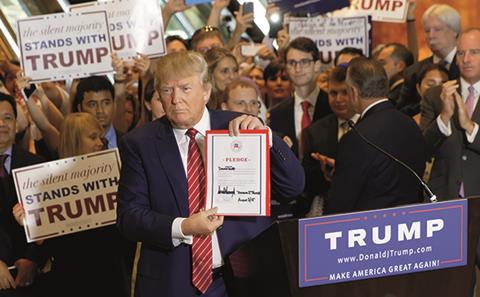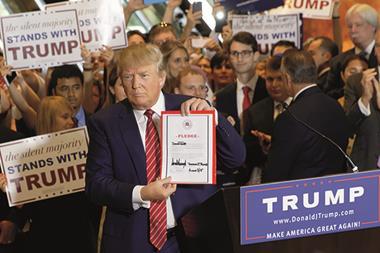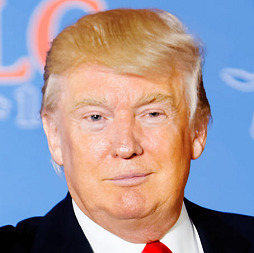America likes to do things bigger and better than everyone else - and so it goes with political shocks. Donald Trump’s victory this week makes the UK’s vote to leave the EU look like a little local difficulty in Europe’s backyard. Trump promised “Brexit plus plus plus” and he delivered.

But while there are, of course, parallels between Brexit and Trump - in many ways the ‘movement’ Trump led was borne out of the same anti-establishment anger that drove Brexit - there are also important differences.
Whereas the Brexiteers in government speak of a new openness to the world, with free trade deals aplenty, Trump’s campaign has been altogether different. Railing against globalisation, Trump wants to unpick trade deals and has threatened to impose 45% tariffs on China. The rhetoric, at least, is of protectionism.
Trump’s victory represents a rejection of the liberal global economic consensus that we have all become familiar with - and which survived the global financial crisis. Governments come and go but the foundations of global trade - and the certainties they provide investors - are meant to remain in place. That, it seems, has now changed.
‘Heading for cover’
“We are heading into a world of unprecedented political risk which calls into question the pillars of the post-World War II settlement,” says Dominic Rossi, chief investment officer at Fidelity International. “Investors are heading for cover.”
Hyperbolic? Perhaps. Or perhaps not. For Trump’s triumph is also a victory for uncertainty, unpredictability, volatility - everything investors hate. Does he really believe what he says? Will he really deliver on his election promises?
Those who see him as a liberal in demagogue’s clothing hope he will now pivot to the centre and work with the more centrist Republicans, many of whom opposed his candidacy, and may not be inclined to vote through the economic chaos that would ensue if they deliver on his wildest pledges.

Yet this may be wishful thinking; much like that of the Remainers who still grieve June’s vote and hope that Brexit, if it comes at all, will be ever so soft.
Having won a popular mandate by defying his party, conventional wisdom and normal political gravity, why would Trump now embrace the establishment that he has been elected to oppose?
If he is frustrated by Capitol Hill, he won’t be shy of telling the people who have put him in the White House - and the anger will be real.
What does all this mean for the UK’s little revolution? Trump has celebrated Brexit in his campaign and has taken the stage with Nigel Farage. He rejected President Obama’s claim that Britain would be at the back of the queue for any trade deals.
Brexit balance
Yet his campaign has made Theresa May and her ministers queasy. How do they now approach the Trump administration? Drawing him close risks having Brexit co-opted by Trump’s agenda - and could further alienate our 27 European partners, with whom, let’s not forget, we must agree a deal.
In the short term, many investors will hunker down - as was the case after the Brexit vote. UK property may see a drop in US investment, as the dollar falls, but other overseas investors, spooked by Brexit, may look again at the UK and think it offers good value and a safe bet in a world that all of a sudden seems much more risky.
But that is for the short term. The true ramifications won’t become clear until next year. When America sneezes, the world catches a cold - so what happens when it howls with rage? We’re about to find out.






























No comments yet